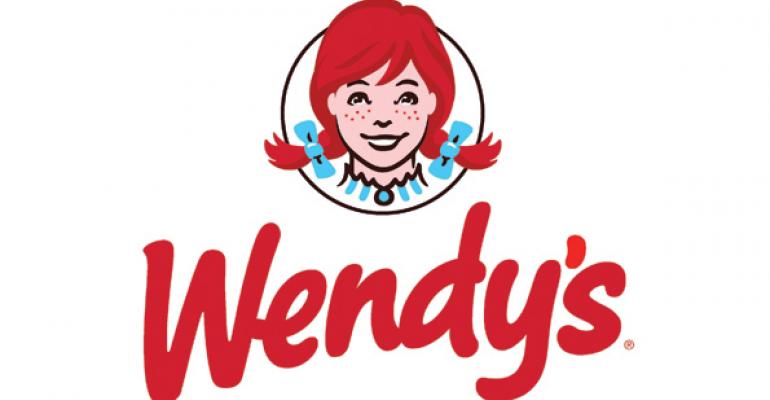The Wendy’s Co. filed a lawsuit last month to terminate one of its largest franchisees, claiming that DavCo Restaurants LLC refuses to meet company requirements to remodel restaurants and install a new point of sale system.
The lawsuit was filed Dec. 22 in an Ohio state court against DavCo Restaurants LLC and DavCo Acquisition Holding Inc. DavCo operates 152 locations in Maryland, Washington, D.C., and Northern Virginia, and is Wendy’s fourth largest franchisee. The lawsuit could force the operator to sell or close those restaurants.
“DavCo, a long-time franchisee of Wendy’s, apparently believes that the guidelines announced by Wendy’s, to be followed by all U.S. and Canadian franchisees, simply do not apply to it,” Wendy’s states in the introduction to its complaint.
The dispute between Wendy’s and DavCo involves two major elements of the chain’s growth plan: its “Image Activation” remodeling initiative and efforts to increase the use of mobile and other technology inside its restaurants.
“They’re really critical to our brand vision,” said Liliana Esposito, Wendy’s chief communications officer. After trying for some time to resolve the dispute, “We had no other choice but to seek to terminate DavCo’s franchise agreement,” she said.
Wendy’s indicated that its dispute with DavCo is unique within the system. “We pride ourselves on our relationship with franchisees,” Esposito said. “This unfortunately is an unusual case.”
According to the lawsuit, DavCo still has time to install a point of sale system and remodel restaurants. But the lawsuit says the franchisee has missed deadlines and given clear indications that it won’t do either, based on a belief that the franchisor doesn’t have the authority to make the requirements.
“DavCo has made clear to Wendy’s by its words and conduct over a long period of time, including again very recently, that it does not intend to perform the obligations expected of it as a Wendy’s franchisee,” the lawsuit says.
Calls to DavCo executives were not returned by press time.
In 2012, Wendy’s revealed plans to install the “Aloha” point-of-sale software from NCR Corporation throughout its system. In its lawsuit, Wendy’s says the Aloha software would enable the chain to “take advantage of significant, technology driven opportunities arising from the tremendous explosion of mobile technology and social media.” Those opportunities include mobile payment, mobile ordering and loyalty programs.
Aloha is used in more than 65,000 locations in the U.S. and Canada by brands including Chipotle, Chick-fil-A, Pei Wei Asian Diner and Dunkin’ Donuts, according to the lawsuit.
Wendy’s franchisees are required to install the software by July 1, 2015, a deadline pushed back a year, the lawsuit says. The company agreed to pay the software license fees of any franchisee that registered their restaurants to get the software by March 31, 2014.
More than 2,500 of Wendy’s 6,500 locations have installed the software. The company said that it has offered financing options to help operators pay for the system.
DavCo didn’t register its restaurants by the March deadline. According to the lawsuit, DavCo “made it clear to Wendy’s that it does not intend to purchase or install Aloha in any of its restaurants.” Wendy’s also claims that DavCo refused to give the chain assurances that it would install the software.
One of Wendy's biggest challenges
(Continued from page 1)
DavCo is apparently taking the same stand on remodeling requirements. In October, Wendy’s told its franchisees that the company wanted 60 percent of its U.S. and Canadian restaurants refurbished by 2020, according to the complaint. It also said that beginning this month, operators will be required to refurbish 60 percent of their restaurants over the next six years, at a rate of 10 percent a year.
Based on this requirement, Wendy’s said DavCo is required to remodel at least 15 restaurants that it selects each year through 2020. How much of a remodel depends on the volume of the restaurant. High-volume locations are required to perform comprehensive Image Activation remodels. Lower-volume restaurants can choose more modest “refresh” options that involve décor and furnishings.
Wendy’s asked DavCo to identify the 15 restaurants it plans to remodel this year by Dec. 15. DavCo missed that deadline, according to the lawsuit.
“Notwithstanding the age and poor condition of many of DavCo’s restaurants,” the franchisee made it clear that “it will not refurbish its restaurants in accordance with Wendy’s guidelines,” Wendy’s said.
Janney Capital Markets analyst Mark Kalinowski said in a note Friday that one of Wendy’s biggest challenges over the past five-plus years has been the number of restaurants in its system that are in “sore need of remodeling.”
This isn’t the first time a dispute between Wendy’s and one of its biggest franchisees over a major corporate initiative has reached a courtroom. In 2011, Wendy’s sued large franchisee WendPartners after it apparently refused to install equipment required for Dave’s Hot ’N Juicy Cheeseburger. The dispute was later resolved and the equipment was installed.
Contact Jonathan Maze at [email protected].
Follow him on Twitter: @jonathanmaze

